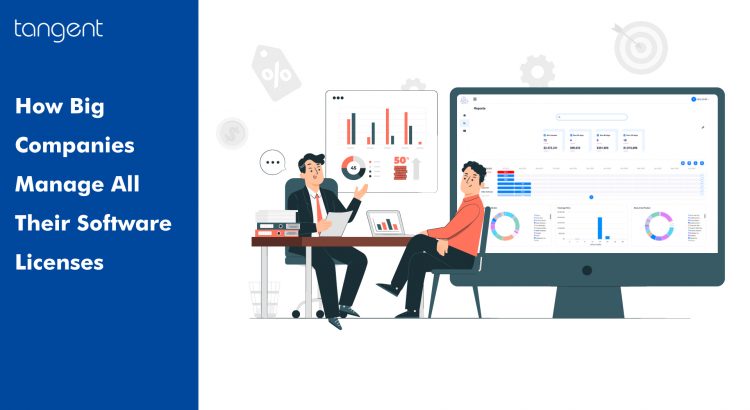Have you ever stopped to think about the sheer number of software licenses a large company might have to manage? With hundreds, if not thousands of employees, each with their own devices, programs and applications, the task of keeping track of software licenses is a complex one.
According to a recent survey, the average cost of a software license for a large company is around $100 per license. This might not sound like a lot, but with the sheer number of licenses a company might have, this cost quickly adds up. In addition to the cost of acquiring the license, there are also ongoing costs associated with maintaining the license, such as upgrades, support and renewal fees. These costs can run into the millions of dollars each year.
But why is it so important for businesses to keep track of their software licenses?
There are a few key reasons:
Compliance: In order to comply with licensing agreements, a company needs to know exactly how many licenses they have, and for which programs. This information helps to ensure that the company is using software in the way that is permitted by the licensing agreement.
Legal implications: Not keeping track of software licenses can result in legal implications for a company. For example, if a company is found to be using software that they do not have the correct licenses for, they can be sued for copyright infringement.
Audits: Software vendors can conduct audits at any time to check that their software is being used in accordance with the licensing agreement. If a company is found to be using software without the correct licenses, they can be fined, or even have their license revoked.
So, How Do Big Companies Manage All Their Software Licenses?
One solution is to use a software license manager.
A software license manager is a tool that helps companies to keep track of their software licenses. It can help to keep track of the number of licenses a company has, the programs they are licensed for, and when they need to be renewed. It can also help to manage the cost of licenses, by keeping track of how much each license costs, and when it needs to be renewed.
A software license manager can also help to ensure compliance by checking that the company is using software in the way that is permitted by the licensing agreement. It can also help to prevent legal implications by ensuring that the company is using software in accordance with the licensing agreement.
One of the biggest advantages of using a software license manager is that it can help to automate many of the manual tasks associated with managing software licenses. For example, it can help to keep track of when licenses need to be renewed, and send reminders to the relevant departments. This can help to avoid the cost and disruption associated with license renewals.
Closing words
In conclusion, managing software licenses is a complex and time-consuming task, but it is a crucial aspect of running a successful business. By using a software license manager, companies can reduce the cost of managing licenses, ensure compliance with licensing agreements, and avoid the legal implications of not having the correct licenses.
So, the question remains: is your company making the most of software license management tools to stay on top of software licenses?
